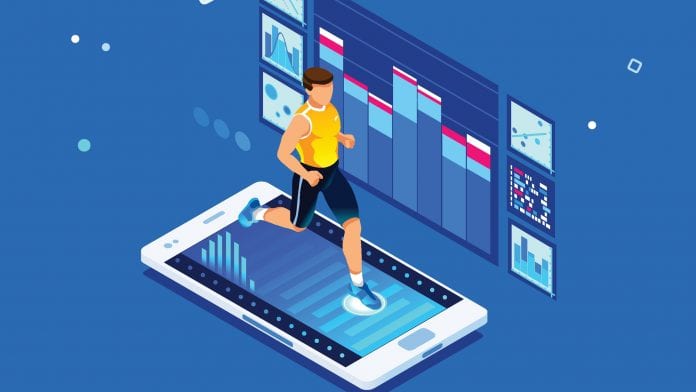
A new review has shown that self-monitoring using digital health tools is associated with significant weight loss.
The systematic review of multiple randomised controlled studies among adults who are overweight or obese showed that greater engagement in self-monitoring using digital health tools was associated with significant weight loss.
Corresponding author, Michele Patel, PhD, post-doctoral research fellow, Stanford Prevention Research Center, Stanford University School of Medicine in California, said: “Digital health tools have flourished in the past decade. What this paper sought out to explore was whether tracking via these digital tools is effective at producing greater weight loss.”
The paper has been published online in Obesity, The Obesity Society‘s flagship journal.
Behavioural interventions
Previous reviews have found that interventions using technology-based modalities, including SMS, apps, wearables, and websites often produced weight loss similar to or less than that of in-person interventions but better than that of control arms; however, these reviews did not focus on self-monitoring which this review focuses on.
The team reviewed 39 studies of behavioural weight loss interventions for overweight or obese adults, using digital health technologies for self-monitoring, finding that among the 67 interventions with digital self-monitoring, weight was tracked in 72% of them, diet in 81% and physical activity in 82%. Websites were the most common self-monitoring technology tools followed by apps, wearables, electronic scales, and text messaging.
Digital self-monitoring was linked to weight loss in 74% of occurrences. This pattern was found across all three major behaviours that are tracked and the team found that few interventions had digital self-monitoring engagement rates greater than 75% of days. Rates were higher in digital tools than in paper-based journals in 21 out of 34 comparisons.
“This may be because many digital tools are highly portable, and therefore allow the user to track any time of the day; digital tools also may make tracking quicker, and may be less burdensome to use,” said Patel.
Assistant Professor Kathryn M. Ross (who was not associated with the research), PhD, MPH, Department of Clinical and Health Psychology, University of Florida, Gainesville, added: “Given that previous reviews conducted before the emergence of these newer tools have established that self-monitoring also plays a key role in the maintenance of weight loss (i.e., preventing weight regain), a critical next step for our field is to examine how we can help sustain engagement with these tools longer term, after the initial novelty wears off.”









